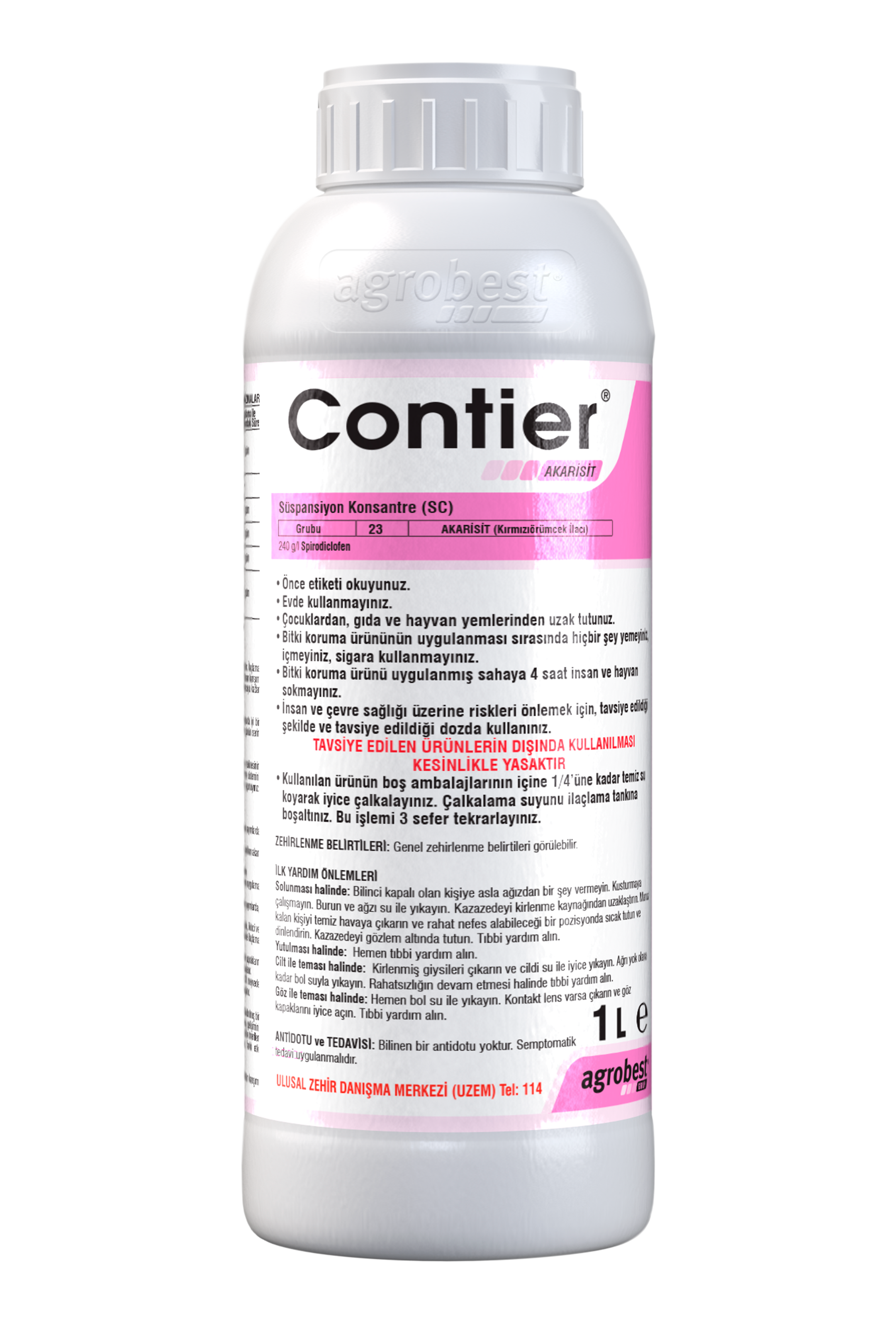
Contier
Spirodiclofen 240 g\l

Spirodiclofen 240 g\l
ACARICIDE GROUP 23
PLANTS AND PEST ORGANISMS ON WHICH THE PREPARATION IS USED
| The name of the plant | The name of the harmful organism | Standard of application | The period between the last treatment and harvest |
| Apple | European red spider mite ( panonychus ulmi ) | 30 ml/100 l water eggs, nymphs, adults | 14 day |
| Two-spotted spider mite ( Tetranychus urticae ) | 25 ml/100 l water eggs, nymphs, adults | ||
| Cherry | Two-spotted spider mite ( Tetranychus urticae ) | 25 ml/100 l water nymph, adult | 14 day |
| Grapes * | Two-spotted spider mite ( Tetranychus urticae ) | 25 ml/100 l water nymph, adult | 14 day |
| Peach | Two-spotted spider mite ( Tetranychus urticae ) | 25 ml/100 l water nymph, adult | 14 day |
| Pear | Pear fly ( Cacopsylla pyri ) | 60 ml/100 l water nymph, adult | 14 day |
*It cannot be used in vineyards where the leaves are used for consumption.
USE OF PLANT PROTECTION TOOLS
European red spider mite in apple: If 8-10 live pests are detected on average in 100 leaves starting from May, treatment should be carried out.
European red spider mite in apples: If 8-10 live pests are detected on average in 100 leaves starting from May, treatment should be carried out.
Two-spot spider mite on cherries; treatments should be done on fruitless trees or after harvest.
Two-spotted spider mite on grapes; treatment is carried out when there are 5-8 live insects.
Two-spot spider mite on peach; Starting from May, if an average of 8-10 live pests are detected on 100 leaves, treatment should be carried out.
Pear fly: Treatments are carried out when all the eggs left by the adult pest have hatched and the second and third generation nymphs have emerged.
MIXING STATE
Do not mix with other plant protection products.